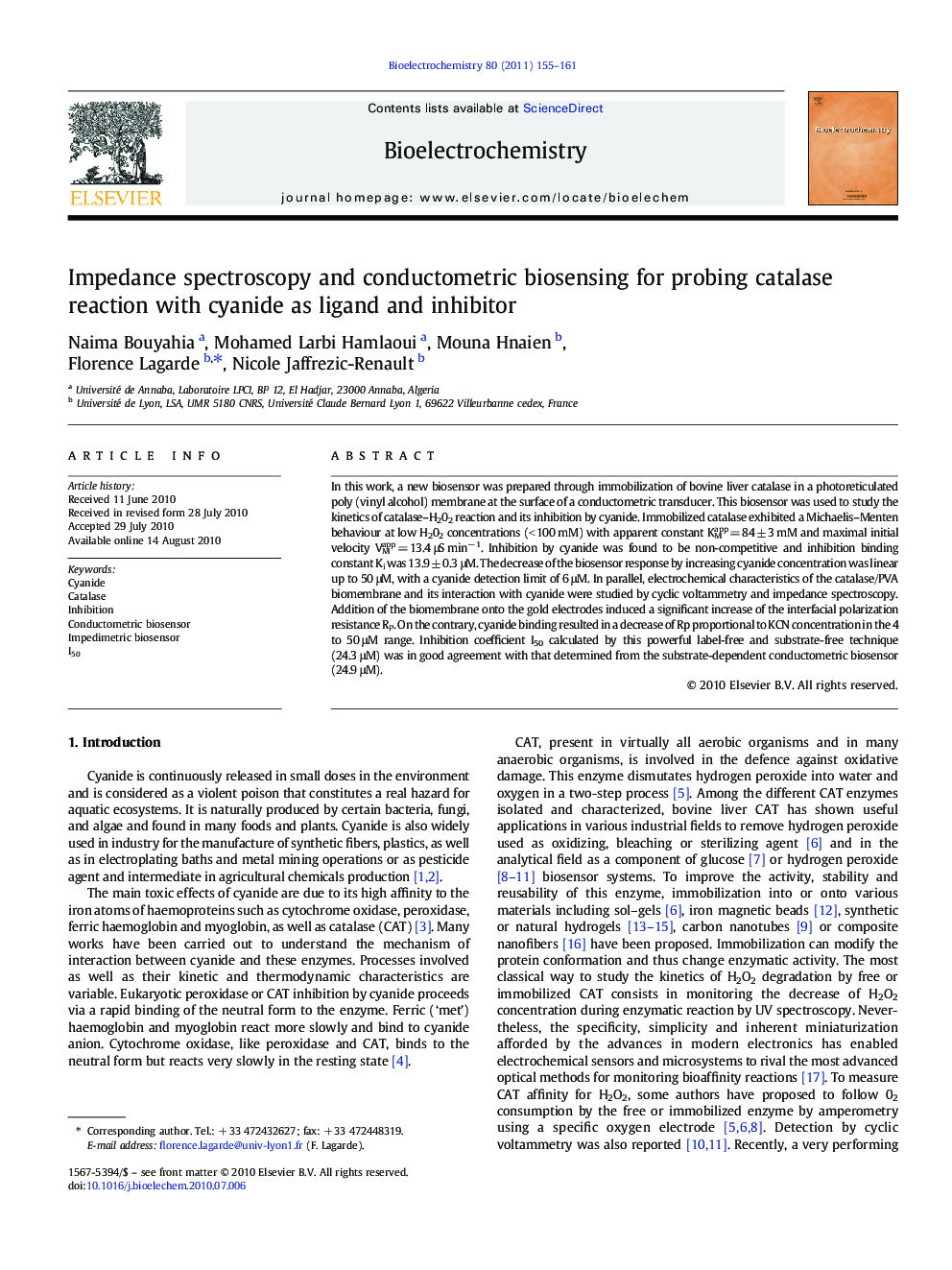| Article ID | Journal | Published Year | Pages | File Type |
|---|---|---|---|---|
| 1268592 | Bioelectrochemistry | 2011 | 7 Pages |
In this work, a new biosensor was prepared through immobilization of bovine liver catalase in a photoreticulated poly (vinyl alcohol) membrane at the surface of a conductometric transducer. This biosensor was used to study the kinetics of catalase–H202 reaction and its inhibition by cyanide. Immobilized catalase exhibited a Michaelis–Menten behaviour at low H202 concentrations (< 100 mM) with apparent constant KMapp = 84 ± 3 mM and maximal initial velocity VMapp = 13.4 μS min− 1. Inhibition by cyanide was found to be non-competitive and inhibition binding constant Ki was 13.9 ± 0.3 μM. The decrease of the biosensor response by increasing cyanide concentration was linear up to 50 μM, with a cyanide detection limit of 6 μM. In parallel, electrochemical characteristics of the catalase/PVA biomembrane and its interaction with cyanide were studied by cyclic voltammetry and impedance spectroscopy. Addition of the biomembrane onto the gold electrodes induced a significant increase of the interfacial polarization resistance RP. On the contrary, cyanide binding resulted in a decrease of Rp proportional to KCN concentration in the 4 to 50 μM range. Inhibition coefficient I50 calculated by this powerful label-free and substrate-free technique (24.3 μM) was in good agreement with that determined from the substrate-dependent conductometric biosensor (24.9 μM).
